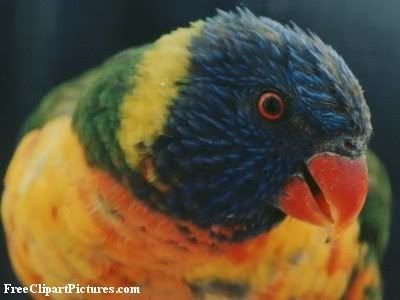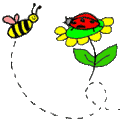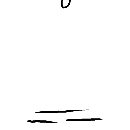The Freedom of Choice by Saradha Narayanan
 by Suzan Abrams
by Suzan AbramsBook Title: The Freedom of Choice
Genre : General Fiction, 263pp
Publisher: Melrose Books, UK
Published: March 1, 2008
ZERO VISIBILITY
There was also no record of any Malaysian blogger; especially those who are often keen to promote each other's books with a frantic zealous fervour, who had accorded this Malaysian physician turned author, a mention. Where is the supportive blogging camaraderie when you need them, one may well ask? Just one announcement could make a major difference. There was one exception however, with a woman who mentioned the book in the way of passing gossip and later, praised the the colour of the author's dress at a reading. Intellectual, naturally and all to do with the power of pink. :-) But at least, it proved a wee bit of information. Perhaps what would be considered detrimental to the majority of writers - big and small - in Europe in the year 2008 is that this first-time novelist currently commands no web presence at all.
THE LOOK
The first thing I observed with inherent excitement was what a beautifully-bound hardback, The Freedom of Choice turned out to be as it lay heavy in my hands. The bold blend of red and maroon shades only upheld the sophistication of the expensive publishing and printing efforts, paid for by the author. The ingenious design cover was fetching. However, a major marketing flaw too, with the back dust jacket. There was no blurb, no mention of the book in any way. The back cover generally offers tremendous potential for advertising space with the kind of generous flexibility to push the plot forward with some intensity, as a desired read. Unless, of course, the author has no interest in sales and had promptly denounced such an option altogether.
THE PLOT
The story itself failed to spring surprises or narrate something new. The plot was hatched from a common subject; either one you'd catch on a tv mini series or happen upon in general fiction. The usual mystified tale of family secrets, made in this case by an Indian girl, Sangeetha and her reluctant choice to give up a baby - born out of wedlock - for adoption. The fictitious setting is of course, the author's homeland, Malaysia, Descriptions switch from small towns to Kuala Lumpur, the capital city, with meticulous ease bearing the strength of the writer and here; the execution of the exposition scenes are superb. However, the drama could have been upheld just as easily anywhere else. There is nothing authentic that celebrates a distinct Malaysian flavour. A swift change of names to places, foods and a touch of history would still allow the reader to plod on.
MY IMPRESSIONS
THE FLAWS & STRENGTHS
- Grammatical error on the first page with relation to a single line that confuses the singular term with a plural one.
- Grammatical error on a line in the last paragraph on page 3.
- IC No.5642646. It must be explained here that every Malaysian citizen is required to have an identity card. These serial numbers have since changed a few years ago with the shape, size and new contents of the card. The numbers are much longer now. But up until then, each card carried a number, 7 digits long. The character, Rachel Thomas is said to be 32 years old in 2004. Which means her identity card number of old should have read as A7.... Old serial numbers that start with 6 were held by citizens who would have been in their 40s in 2004. Old serial numbers that start with 5 were held by citizens who are now in their 50s (the author's age group) in the year 2004. So it doesn't make sense at all that a 32-year old character would have a number that reads as it does, in the novel.
- He sounded confident of himself, Wrong. He sounded confident, ...
- "It was unseasonably warm despite the air-conditioning." How can that be? Was the air-conditioning faulty? Was it set at too low a volume? No, the author doesn't mention this but the air was warm even while the air-conditioning busied itself, chilling it.
- The coastal town of Klang. Wrong. Klang is not a coastal town. The nearest seaside is Morib, several kilometres away and the closest township to it is Banting. Morib is a coastal town. Rather, Klang is much closer to and directly next-door to Port Klang which holds the harbour. Up to a few decades ago, it was called Port Swettenham, named after Frank Swettenham.
- One of the major flaws that alienated me from the entire story was Narayanan's almost complete lack of knowledge that made for the Malayalee Christian community in Malaysia or rather worldwide; a culture which also happens to be my direct heritage. Narayanan gave a name like Matthew Thomas to one of her main characters in this case used completely wrong anecdotes on the poor chap with a view to religion and everyday detail. Families with names like George, Abraham, Thomas, Matthew, Mathew, Philip, Koshy, Varughese, Verghese etc belong to a highly traditional, conservative and unique Christian way of worship called the Marthomites or Jacobites. There are churches like these all over Malaysia and all round the world. It's the sort of Christian worship that demands a fair bit of routine ritual attached to the regular and passionate Sunday chants. It is an exception to the rule when any individual from this family joins the Catholic Church and is definitely not a matter of course. So that part should have been made absolutely clear. The closest the majority of Malayalee families with names like these, get to Catholicism is usually the Anglican church. Malayalee catholics have a different set of names altogether and practice a different culture. In this vein, you'll find surnames like Fernandez, Gomez, Pereira and D'Cruz, more forthcoming. That would have been clearly better suited. I'm sure Narayanan would easily be able to hunt down an old colleague to check details. Many Malayalee Christians, whose character Narayanan got wrong, work in Malaysia as surgeons, medical specialists and lawyers.
- I remember my malayalee friends and myself in the Convent as little girls. We were never allowed to attend mass by our parents and often incurred the wrath of the nuns to high glory. Had Narayanan done her homework, what a lot of juicy tidbits she could have added in to her book to at least set it apart from the dullness & unintentional errors it finally displayed.
- In Malaysia, Singapore and Australia anyway from what I remember rightly, Malayalee Christian children never call their parents Amma. So Matthew calling his mother that was a big boo-boo. That's a tamilian word from Chennai and used by Hindu families in the south. Kerala is in a completely different location, resting on the tip of India. The local dialect is Malayalam. We would also never call a sister Akka. So that proved another boo-boo. That's another tamilian word from Chennai. Mother was simply mummy. And each child in each Christian family had 'house names'. Girls were sometimes called Baby this or Baby that... and ending with ... mol. Or mol-lay. Susie mol, for instance. That's how indulgent parents addressed their children and siblings addressed each other. In this way, Narayanan missed the plot completely. Also, the fictitious daughters hold the wrong names. But let's say that the fictitious mother didn't know any better. Basically in a Christian family that spotted a name like Matthew Thomas, the first daughter would be named after the husband's mother. While these episodes were covered, why were these important things not taken into consideration, to add drama and a sense of realism to a plot that seemed to struggle very hard to trail its way all around realism with the lectures on history and malaysian seasons that seemed so out of place in the book.
- And then there was a question of food. Malayalee dishes are cooked in a completely different style to the majority of Indian dishes. When there was so much talk of food in Matthew Thomas' s household, why was this never taken into consideration? It simply served to show up Narayanan's ignorance or careless lack of thorough detail that would have added vital information to her plot overall.
- The mention of Malaysian history feels totally unnecessary and should have been scraped off from the novel to make it stronger. It is not involved with the working of the plot and one gets the feeling that the author feels it her utmost duty to inform the reader almost like a school lesson. The characters are dismissed at sudden intervals and at the risk of disintegrating a hyped-up conflict, Narayanan herself steps into the book to playact a teacher bent on lecturing old colonial history which stay painfully juxtaposed against the more valuable chapters.
- The author also has a tendency to tell and not show. Especially with people descriptions. Or a thunderstorm. It would have been so much more exciting to describe a thunderstorm scene in full detail than to start explaining the type of different Malaysian seasons to the reader. I would suggest Narayanan reads Anne Enright's Taking Pictures which would be extremely helpful in the shaping of sophisticated and not amateur descriptions. The usual long hair falling to shoulders, ...had a crooked nose, kind of thing.
- There is a classic done-to-death Bollywood scene in the way that Rachel first gets pregnant at 18 with a college lad who doesn't want to know. Young lovers running from a thunderstorm. Breasts showing through a wet blouse, passion alights, the thunder rolls on, the lips meet. Scene closes. Lifetime of regret. Several ancient Hindustani films spotted these scripts.
- Still, Narayanan managed to take possession of Rachel's character plodding along with its powerful emotional fortitude towards the end excellently indeed; and the character appeared to finally connect with her readers. However, I found the epilogue an overly-ambitious effort with which to escape predictability and trigger a hopeful grandeur. The novel was left with a gaping hole at the end for it had failed to answer the questions it had asked itself along the way. There was a lack of mastery at tying up loose ends. Rachel's personality conjured up from her distinct dialogue and habits were also splendidly championed. And I thought Matthew's thoughts to have been well-organized although his character and its numerous unanswered questions appeared to be left dangling in the air and in a right sorry state. There was commendable philosophical introspection on the subject of adoption and so too, the question of a wife's rightful submission. There was a terrific mulling about by all characters. Rohan, the private investigator dallied along as the weakest character at all.
- Saradha Narayanan would be top-class at plays, scripts and pieces of writing that hinged its success on dialogue. But the execution of prose scenes and methods of research still need a lot of work.
Labels: saradha narayanan















